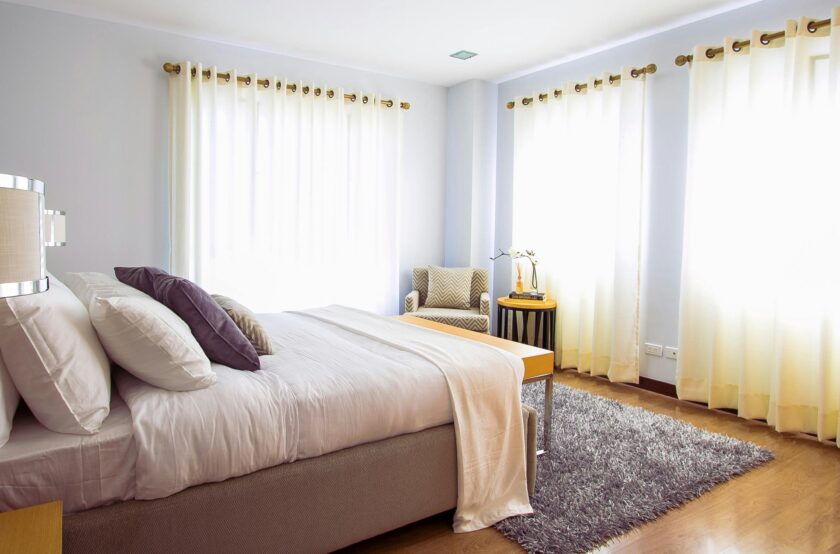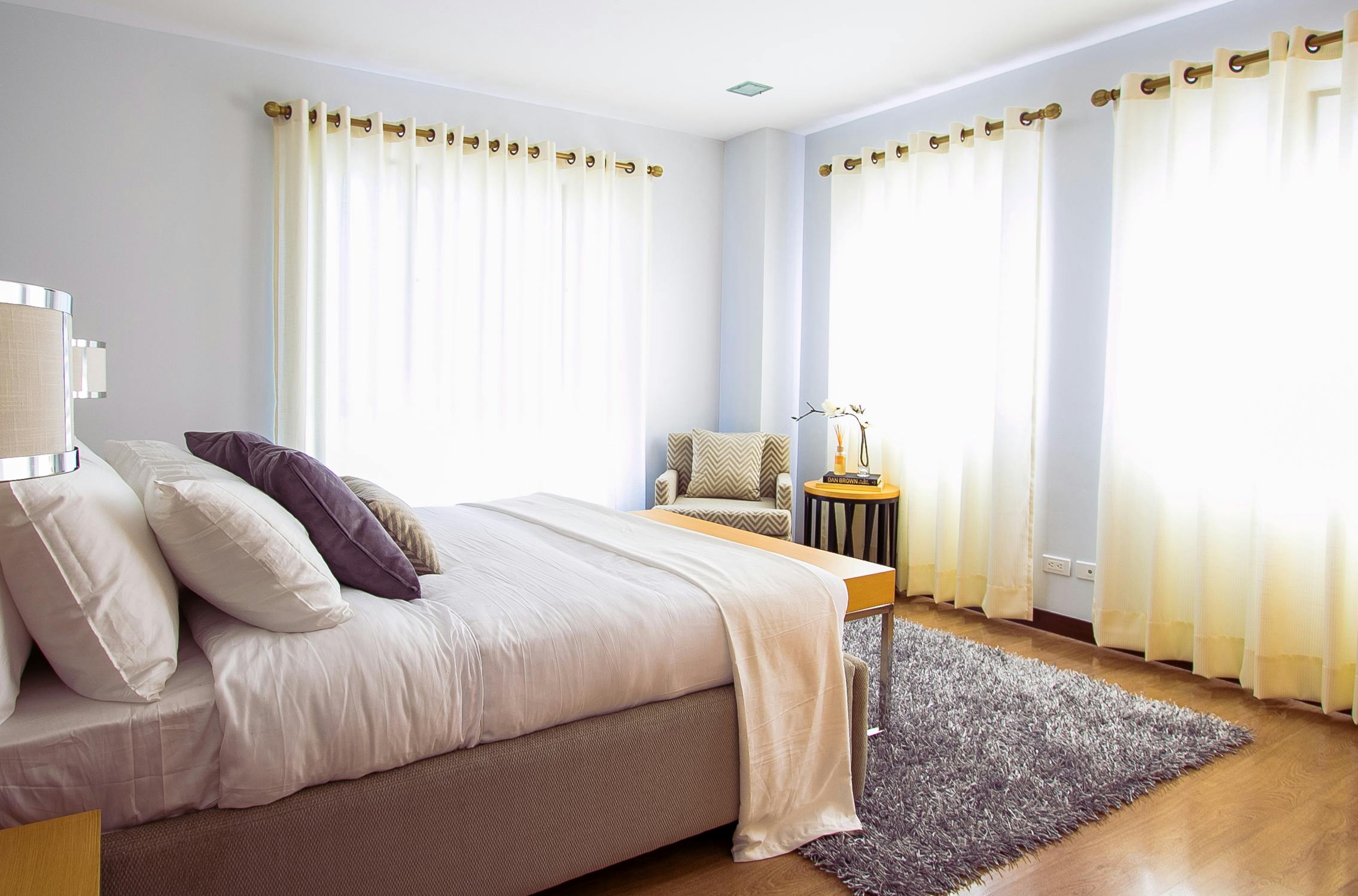How to Maintain a Clean and Hygienic Bedroom

A clean and hygienic bedroom is essential for maintaining good health and getting quality sleep. Your bedroom is where you recharge after a long day, but without proper cleaning, it can become a hotspot for dust, allergens, and bacteria. Regular upkeep is crucial for creating a space that promotes relaxation and wellness. With the right cleaning practices and protective measures, you can keep your bedroom feeling fresh and inviting.

Regular Cleaning Routines for a Hygienic Bedroom
Regular cleaning is the foundation of a hygienic bedroom. Dusting all surfaces, such as nightstands, shelves, and headboards, should be a weekly task. Dust particles accumulate quickly, especially in rooms with fabric-heavy decor like curtains and upholstered furniture. Using a damp cloth can help trap dust instead of dispersing it into the air.
Vacuuming is another key step. Carpets, rugs, and even the crevices of hardwood floors can collect allergens that trigger sneezing or discomfort. Don’t forget about curtains, which are often overlooked but tend to hold dust and pet hair. Regular vacuuming reduces allergens and keeps the room feeling fresh.
High-touch areas like light switches, door handles, and remote controls are breeding grounds for germs. Wiping these down with disinfectant wipes or a mild cleaning solution reduces the spread of bacteria. Incorporating these small habits into your routine can have a big impact on your bedroom’s cleanliness.
Protecting and Cleaning Your Mattress
Your mattress is one of the most used items in your bedroom, making it a prime spot for collecting dust mites, sweat, and allergens. Protecting your mattress is a critical step in maintaining hygiene. A good-quality mattress protector acts as a barrier, preventing liquids, dust, and dirt from seeping into the mattress.
If you’re unsure about where to start, a mattress protector guide can help you choose the best option for your needs. It explains how to select the right material and features, whether you’re looking for waterproof protection, cooling technology, or hypoallergenic covers. Using a protector keeps your mattress cleaner and extends its lifespan, saving you money in the long run.
In addition to using a protector, regular mattress cleaning is essential. Vacuum your mattress monthly to remove surface dust and dirt. For spills or stains, spot-cleaning with a mild detergent and water can prevent odours and discolouration. These simple steps help keep your sleeping area fresh and hygienic.
Washing Bedding and Linens
Your bedding directly touches your skin, making it crucial to keep it clean. Sheets, pillowcases, and duvet covers should be washed at least once a week. Washing with hot water helps eliminate bacteria, dust mites, and allergens that can accumulate over time. If hot water isn’t an option, consider using an antibacterial laundry detergent.
Hypoallergenic and breathable bedding materials can also contribute to a cleaner sleeping environment. Cotton and bamboo fabrics are great choices because they allow airflow and reduce the buildup of allergens. Rotating your bedding regularly makes sure that you’re always sleeping on a clean surface, promoting both hygiene and comfort.
Managing Humidity and Air Quality
Humidity levels in your bedroom can significantly impact hygiene. High humidity creates the perfect environment for mould, mildew, and dust mites, which can affect both your health and the longevity of your bedding and furniture. Keeping the humidity in your room between 30% and 50% can help minimise these issues.
Using a dehumidifier is an effective way to manage moisture levels, especially in areas with naturally humid climates. Similarly, an air purifier can improve air quality by removing allergens, dust particles, and even unpleasant odours. For a natural approach, placing a few indoor plants, like a snake plant or peace lily, can also help freshen the air.
Daily ventilation is equally important. Open your windows for at least 15 minutes a day to let fresh air circulate. This helps reduce stuffiness, eliminates stale air, and keeps the room smelling clean. Regularly replacing air filters in your HVAC system also contributes to better air quality, preventing dust from recirculating in the room.
Decluttering for a Cleaner Space
Clutter isn’t just unsightly; it’s also a magnet for dust and bacteria. Piles of clothes, books, or miscellaneous items can create hard-to-reach spots that collect dirt over time. Decluttering makes your bedroom easier to clean and also creates a more peaceful and relaxing atmosphere.
Start by sorting items into categories: keep, donate, or discard. Storage bins or under-bed organisers can help manage items you want to keep but don’t need access to daily. A clutter-free space allows for quicker cleaning routines and reduces the amount of dust accumulation in your bedroom.
Maintaining a minimalist approach to decor can also make a difference. Choose furniture and decor pieces that are easy to wipe down or clean. Avoid excessive knick-knacks, which can create extra surfaces for dust to settle. By decluttering and keeping your space simple, you can make regular cleaning less time-consuming.
Incorporating Sustainable Cleaning Practices
Switching to sustainable cleaning methods benefits both your bedroom and the environment. Many commercial cleaning products contain harsh chemicals that can linger in the air and irritate the skin or respiratory system. Opting for eco-friendly cleaning products reduces these risks while maintaining a hygienic environment.
Natural solutions like vinegar, baking soda, and lemon juice are effective and affordable alternatives for cleaning surfaces. For example, a mixture of vinegar and water works well for wiping down furniture, while baking soda can deodorise carpets and mattresses. These solutions are safe for frequent use and leave no harmful residues.
Reusable cleaning tools, such as washable microfiber cloths, reduce waste and are more effective at trapping dust compared to disposable wipes. Investing in long-lasting cleaning tools saves money and supports sustainable habits. Over time, these small changes contribute to a healthier bedroom and a lower environmental impact.
A clean and hygienic bedroom is more than just a luxury—it’s essential for your well-being. By managing humidity, decluttering, and adopting sustainable cleaning practices, you create a space that supports better sleep, improved health, and peace of mind. Incorporating these habits into your routine makes maintaining a fresh and inviting bedroom easier and more rewarding. A little effort goes a long way in keeping your personal sanctuary clean and comfortable.
Spotted something? Got a story? Email: [email protected]
Latest News
